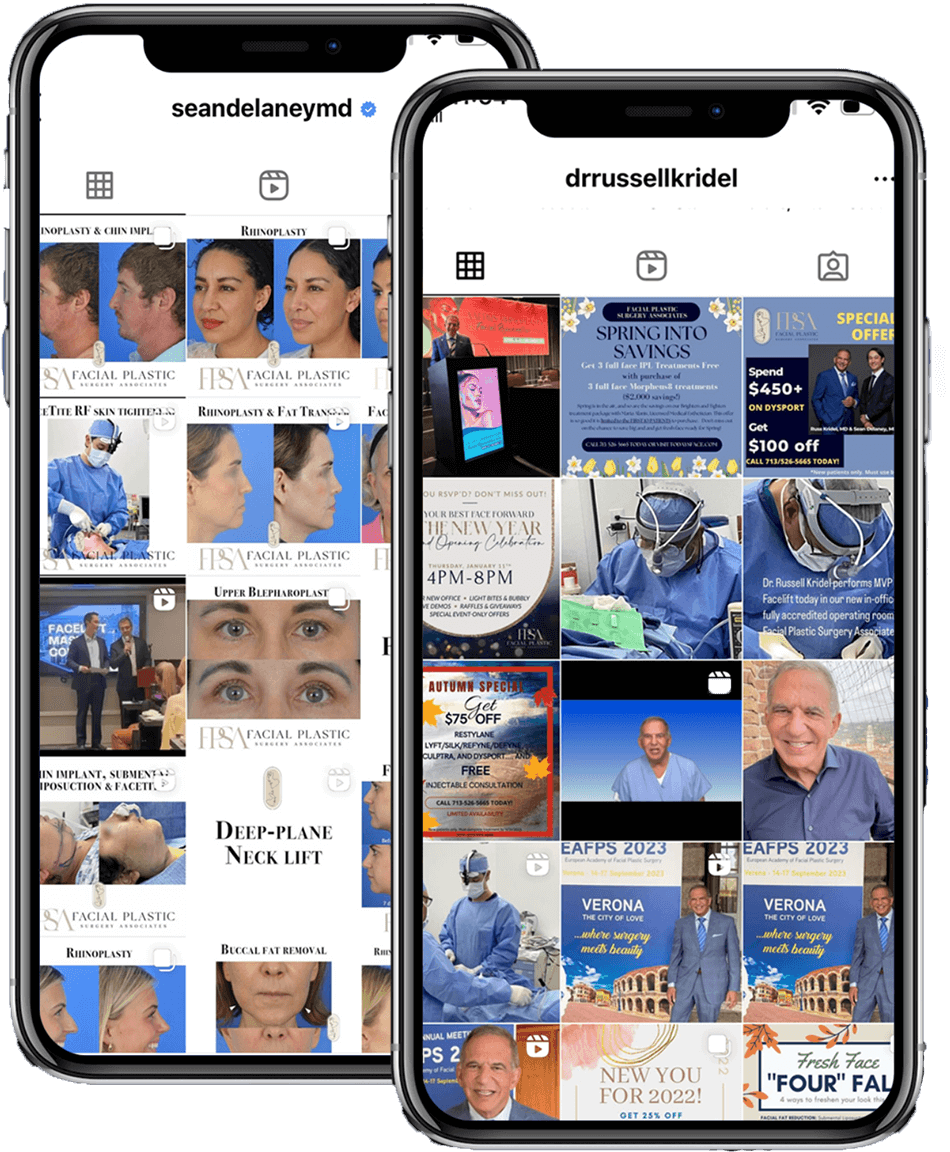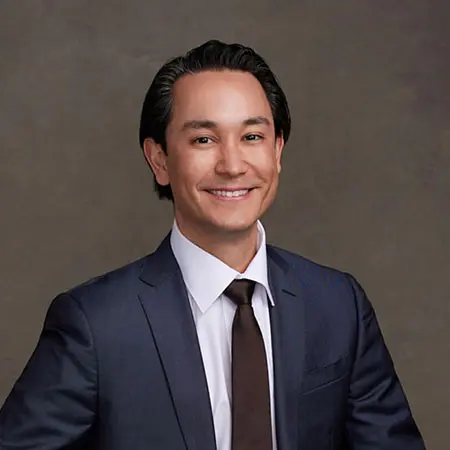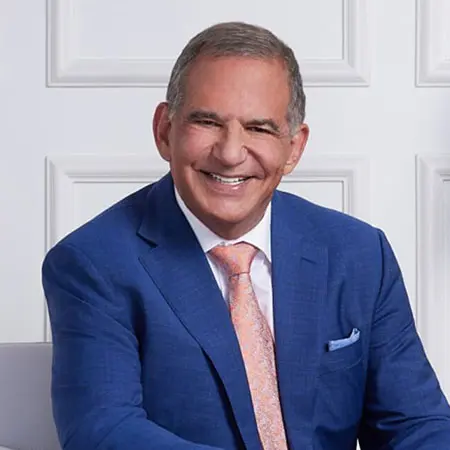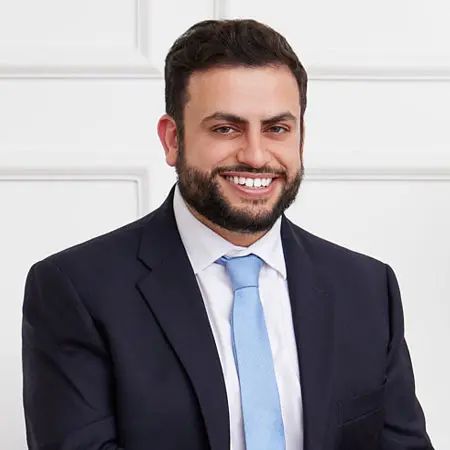August 05, 2025 | Board-Certified Facial Plastic Surgeon, Rhinoplasty, Rhinoplasty Expert, Septoplasty
17 minute read
If you live in Houston, River Oaks, The Woodlands, Katy, Kingwood, Sugar Land, or the surrounding areas, you may have done an internet search for “Rhinoplasty cost” and found that there is a wide range of prices.
According to the American Society of Plastic Surgeons, the average cost for Rhinoplasty, also referred to as a nose job, was $7,636. But, it is important to note that this amount does not include operating room and anesthesia fees. And, it does not include the functional correction procedures commonly used in Rhinoplasty, among other factors. A more realistic price range for Rhinoplasty in Houston is $6,000 to $25,000.
Why Is There Such a Range of Costs for Rhinoplasty Surgery?
There are many aspects of Rhinoplasty surgery that can affect the total cost. Here, FPSA surgeons, Dr. Russell Kridel and Dr. Sean Delaney, provide you with a breakdown of the factors that affect the cost of a nose job, so that you can budget for the future. It is important to understand these factors so that you know the questions to ask when you are researching the cost of Rhinoplasty.
Top 10 Factors Affecting Rhinoplasty Cost
1. Treatment Plan
The term “Rhinoplasty” refers to the cosmetic changes made to your nose to improve its appearance. It is quite common that functional procedures, such as Septoplasty to correct a deviated septum, and Inferior Turbinate Reduction to correct the size of the turbinates, are done at the same time as the cosmetic (Rhinoplasty) procedure.
If you are doing research into costs, be sure that you are comparing the same procedures (apples to apples). Some surgeons charge separately for each of these procedures, while others bundle them altogether into one comprehensive surgical fee.
2. Consultation Fee
It is very important to have a thorough consultation with each of the surgeons you select to visit. When you make the appointment, ask about the cost of the consultation. In Houston, the cost for a Primary Rhinoplasty consultation ranges from complimentary to $300. Some practices allow you to deduct the cost of the consultation from the final payment for the surgery. As a general rule of thumb, less experienced surgeons may offer complimentary consultations to attract new patients.
The most thorough consultations should last about 45 minutes to 90 minutes, allowing the surgeon to perform a thorough evaluation of the inside and outside of your nose, take photographs and image your pictures, and answer all your questions. At FPSA, the consultation fee for primary Rhinoplasty is $250.00. Paying for the consultation is well worth the investment so that you feel confident and informed in your surgical choice.
3. Surgeon Fee
This is the largest portion of the total cost and reflects the surgeon’s training, skill, reputation, and experience. Seek out surgeons who are board-certified and fellowship-trained in Facial Plastic Surgery and Otolaryngology, Head & Neck Surgery, and have published extensively in scientific journals—such as Dr. Russell Kridel and Dr. Sean Delaney. Although they often command higher fees, it is due to their proven outcomes, specialized knowledge, and refined techniques.
In Houston, surgeon fees alone for Primary Rhinoplasty can range from $6,000 to over $20,000, depending on whether the surgery is just cosmetic (Rhinoplasty only) or if functional procedures also need to be performed (Septorhinoplasty).
Primary Rhinoplasty means it is the first Rhinoplasty that you have undergone. Revision Rhinoplasty is significantly more complicated, and surgeon fees will also be much higher.
When approximate costs for OR/facility fees and anesthesia fees are added to the range of surgeon fees, the surgical cost range for a first-time Rhinoplasty is from $11,000 – $25,000.
Rhinoplasty costs at FPSA are comprehensive and include functional procedures that the surgeon recommends for your treatment plans. They also include all post-operative visits. Our comprehensive pricing includes the assumption of 3.5 hours for the operating room and anesthesia. The comprehensive pricing for Dr. Sean Delaney is approximately $17,195, and for Dr. Russell Kridel it is approximately $19,895.
Remember, you’re not just paying for surgery — you’re investing in the safety and success of your long-term results.
4. Facility/Operating Room Fee
Rhinoplasty should be performed in a fully accredited surgical facility that prioritizes patient safety. The facility fee includes use of the operating room, equipment, and nursing staff. The fee generally ranges from $1,600 to $3,200, depending on surgery length and facility type. There is a wide price range because it is based on the number of hours the surgeon estimated for the surgical procedures being done. For example, Rhinoplasty by itself takes less time than Rhinoplasty with Septoplasty or Rhinoplasty with Septoplasty and Inferior Turbinate Reduction. When you have your consultation, be sure to obtain an estimate of the amount of time for your surgery and the estimated facility fee.
5. Anesthesia Fee
Rhinoplasty is performed under general anesthesia administered by a board-certified anesthesiologist. In Texas, Certified Registered Nurse Anesthetists (CRNAs) can administer general anesthesia, but they do not have independent authority to do so. They must be delegated the act of selecting and administering anesthesia by a physician, and they must practice under the supervision of a physician. Anesthesia costs also vary a great deal because they depend on how long the procedure takes. Typically, the fee falls between $800 and $2,000, depending on how long the procedure takes. When you have your consultation, be sure to obtain an estimate of the amount of time for your surgery and the estimated anesthesia fee.
6. Surgical Techniques
Like snowflakes, no two noses are the same. Your surgeon should provide you with a surgical treatment plan that is individualized to your particular nose. In other words, the best Rhinoplasty surgeons do not do a one-size-fits-all technique. Your procedure may involve an open or closed approach, cartilage grafting, nasal valve correction, alar base reduction, or tip reshaping, among other techniques. And for optimal results, your surgeon may need to use multiple maneuvers. More complex procedures require more time and skill. Dr. Kridel and Dr. Delaney are recognized as Houston’s “Nose Docs.” They tailor every surgical plan to the unique structural, functional, and aesthetic needs of each patient, which is reflected in their pricing.
7. Surgical Materials
Surgical materials can include items used during surgery, such as sutures, AlloDerm™, and homologous cartilage grafts. In some cases, cartilage grafts may be harvested from the septum, ear, or rib to support or reshape the nasal structure. Post-operatively, materials can also include nasal splints and special tape. Use of advanced materials can play a critical role in achieving long-lasting, natural-looking results. In some instances, advanced material is needed that can affect the overall cost of surgery. If this is needed, your surgeon should include an estimate for material cost when the surgical treatment plan and quote are provided to you at your consultation. Choosing a surgeon who is meticulous with technique and uses only the highest-quality materials ensures fewer revisions, better outcomes, and long-term satisfaction — even if the upfront cost is higher. High-end practices like Facial Plastic Surgery Associates utilize advanced tools and customized grafting techniques that enhance results and minimize complications.
8. Geographic Location
Where your surgery is performed plays a significant role in pricing. Rhinoplasty charges in New York City, Los Angeles, and San Francisco are the highest in the country. Metropolitan areas like Houston typically have higher procedural costs than mid-size or small cities due to:
- Access to elite specialists
- Advanced surgical facilities
- Higher local demand for aesthetic and reconstructive procedures
The Texas Medical Center and surrounding community medical facilities are the largest and most sophisticated in the world. This also means that patients in Houston benefit from access to some of the nation’s best surgeons, such as Dr. Kridel and Dr. Delaney. Some patients travel to other countries for Rhinoplasty surgery because the costs are often less. At FPSA, we discourage patients from traveling to other countries for surgery. The quality of physician training is not as rigorous as in the United States, and there are fewer (or no) regulations for patient safety in physician offices, hospitals, and outpatient facilities. If there is a surgical complication, patients often do not have options for appropriate care. At FPSA, over 50% of the noses we do are revisions from work done elsewhere, including from other countries.
9. Additional Cosmetic Procedures
Patients sometimes choose to combine Rhinoplasty with other cosmetic facial procedures, such as:
- Eyelid surgery
- Facial fat grafting
- Chin augmentation
While combining procedures does increase the total surgical cost, it can provide a more harmonious facial aesthetic and may be more convenient and cost-effective than undergoing separate surgeries. Patients often like to combine procedures so that they have only one recovery period.
10. Pre-Operative and Post-Operative Expenses
Recovery doesn’t end when you leave the operating room. Post-op costs can include:
- Prescription and non-prescription medications: Your physician will provide you with a list of appropriate prescription and non-prescription medications. They commonly include medications for pain relief and antibiotics. Typically, the medications recommended will be reviewed at your pre-operative appointment.
- Follow-up appointments: You should ask your surgeon’s office if they charge for follow-up appointments. Some offices charge for post-operative visits. At FPSA, follow-up visits are included in the surgical fee.
- Special dressings or compresses: As appropriate, your surgeon’s office will provide you with information regarding any other post-operative care items you may need.
- Time off work/lost wages: Post-operative care provided by your surgical team is important. However, it is just as important for you to follow your post-operative instructions to help ensure a positive outcome. You need to rest and take care of yourself, which can take time. During your consultation with Dr. Kridel or Dr. Delaney, you should discuss the recommended time off from work for your specific surgical plan so that you can plan ahead. This will help to ensure a smooth, stress-free healing process.
- Travel and lodging costs: Patients often travel to Houston for nasal surgery, including Rhinoplasty, from other parts of the United States and other countries because Houston is recognized for its high-quality healthcare. Fortunately, there is a wide range of hotel and Airbnb options in the greater Houston area. At FPSA, for patients traveling from other cities, states, or countries, we recommend that they stay for two weeks. Dr. Kridel and Dr. Delaney do not want Rhinoplasty patients to fly during those first two weeks after surgery because of the airplane pressurization.
Does Health Insurance Cover the Cost of Rhinoplasty?
Because Rhinoplasty is considered a cosmetic procedure, insurance companies do not cover the cost.
If you have functional nasal procedures, such as Septoplasty and Inferior Turbinate Reduction done at the same time, your insurance company may provide some coverage only for those functional elements. Coverage of any kind for functional procedures varies greatly between insurance companies, with factors such as deductibles and in-network vs out-of-network policies playing a part. It is important that you check with your specific carrier regarding your particular situation.
Some surgeons are enrolled as insurance providers for functional nasal procedures. However, because insurance companies reimburse physicians so poorly for functional nasal surgeries, an increasing number of surgeons have opted out of all private insurance and Medicare/Medicaid coverage. With low reimbursement, a surgeon, particularly one in private practice, cannot pay the office overhead, staff, and surgical materials needed to keep their practice viable. If your surgeon does not accept insurance, you may be able to go ahead and file your claim with the insurance directly, and any reimbursement would come back to you. The surgeon will be considered an out-of-network provider.
Again, check with your insurance carrier to determine your coverage. At FPSA, Dr. Russell Kridel and Dr. Sean Delaney are not enrolled with any insurance providers or with Medicare/Medicaid.
Are Financing Options Available for Rhinoplasty in Houston?
Yes. Many plastic surgery offices offer some type of financing option. CareCredit® and Cherry are two of the most common options. These programs are designed to help make facial plastic surgery accessible while maintaining the highest standard of care.
FPSA offers flexible financing through Cherry, which allows you to split your payments into manageable monthly installments. For those who qualify, we also offer 0% financing up to 18 months. Patients can check their eligibility with Cherry on our website. There is no hard credit check, so it does not affect your credit rating. Financing options provided when you apply for Cherry are good for 120 days.
Tips for Planning for Rhinoplasty
- Start with a consultation with a double board-certified facial plastic surgeon at least 2–4 months before your desired surgery date.
- Budget for all potential costs, not just the surgeon fees.
- Consider time off work. Most patients need 7–10 days of downtime.
- Typically, you will have a splint on your nose for about 7 days. While you will feel good, most patients prefer not to be seen at work with the splint.
- If you have an occupation that allows you to work remotely without being seen, you can do remote work after just 3-4 days.
- Some patients like to take 10 days to two weeks off to allow for the reduction of swelling and bruising. The majority of patients do not have visible bruising at 2 weeks.
- Arrange for transportation and someone to help you post-surgery.
- Surgery is typically performed at an outpatient facility, so you will need to have someone take you and then pick you up after surgery.
- You will want to have someone take you to your first post-operative visit so that you do not need to drive. At FPSA, we see our Rhinoplasty patients early the next morning after surgery.
- Don’t forget to include medications and post-op care supplies in your budget.
How to Select a Rhinoplasty Surgeon
Choose a surgeon who is:
- Double board-certified in Facial Plastic Surgery and Otolaryngology, Head & Neck Surgery
- Has extensive experience in Rhinoplasty and Revision Rhinoplasty
- Has published on Rhinoplasty techniques in peer-reviewed scientific journals and textbooks
- Has an appointment (or is on staff) at a fully accredited medical school
- Has aesthetic sensibility and a strong safety record
- Is willing to listen to your goals and communicate clearly
- Has excellent reviews for surgical results and patient care. However, patients should not select a surgeon based only on reviews. The most respected specialists recommend that patients consult with at least two surgeons because there is a difference between surgeons.
- Positive word of mouth from friends and family members who have had surgery with the surgeon can be a good referral source.
- Shares before and after photos that have not been altered. When you are at the consultation, ask to see before and after photos of patients operated on by that particular surgeon. Sadly, some physicians have posted retouched or filtered photos, or photos of patients that are not their own patients, on social media.
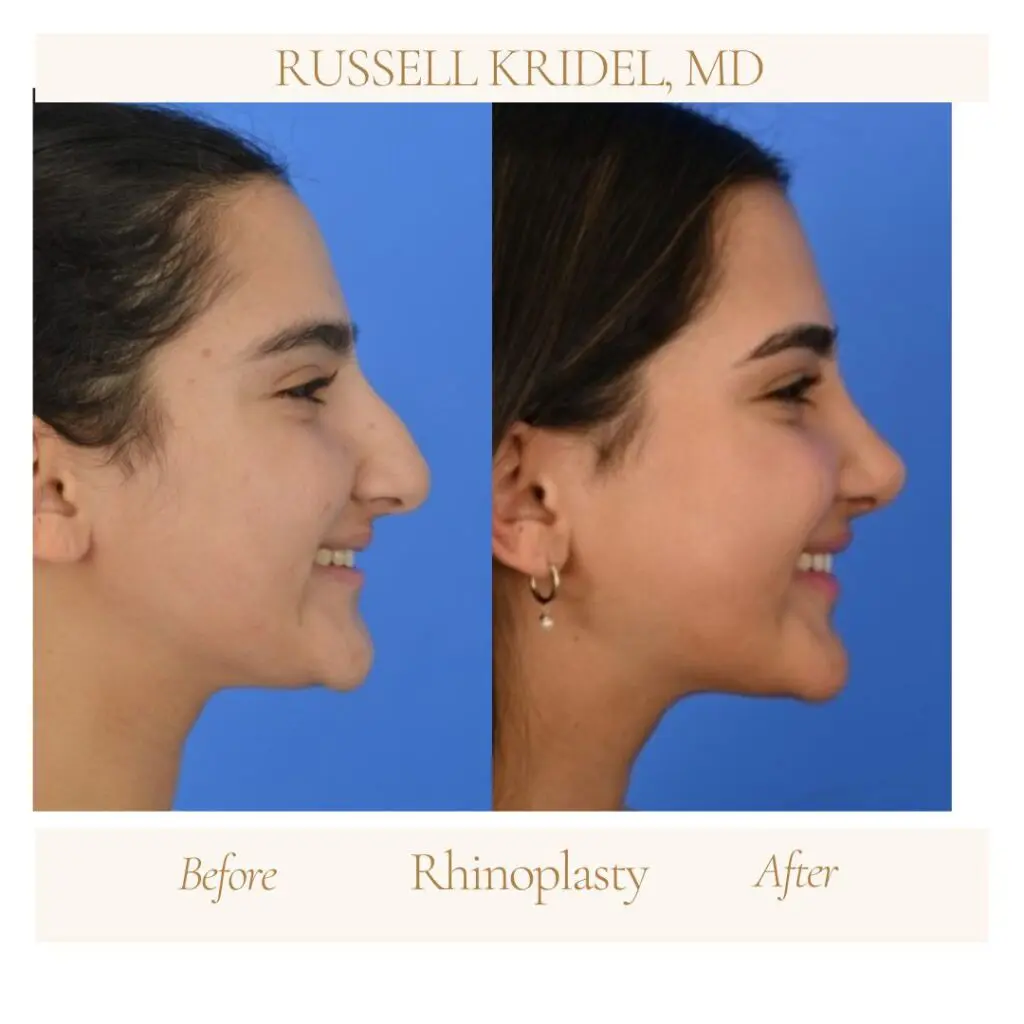
Dr. Kridel and Dr. Delaney specialize exclusively in facial plastic surgery, offering unmatched depth of experience, expertise, and artistry in Rhinoplasty. We also offer an excellent guide to selecting a Rhinoplasty surgeon.
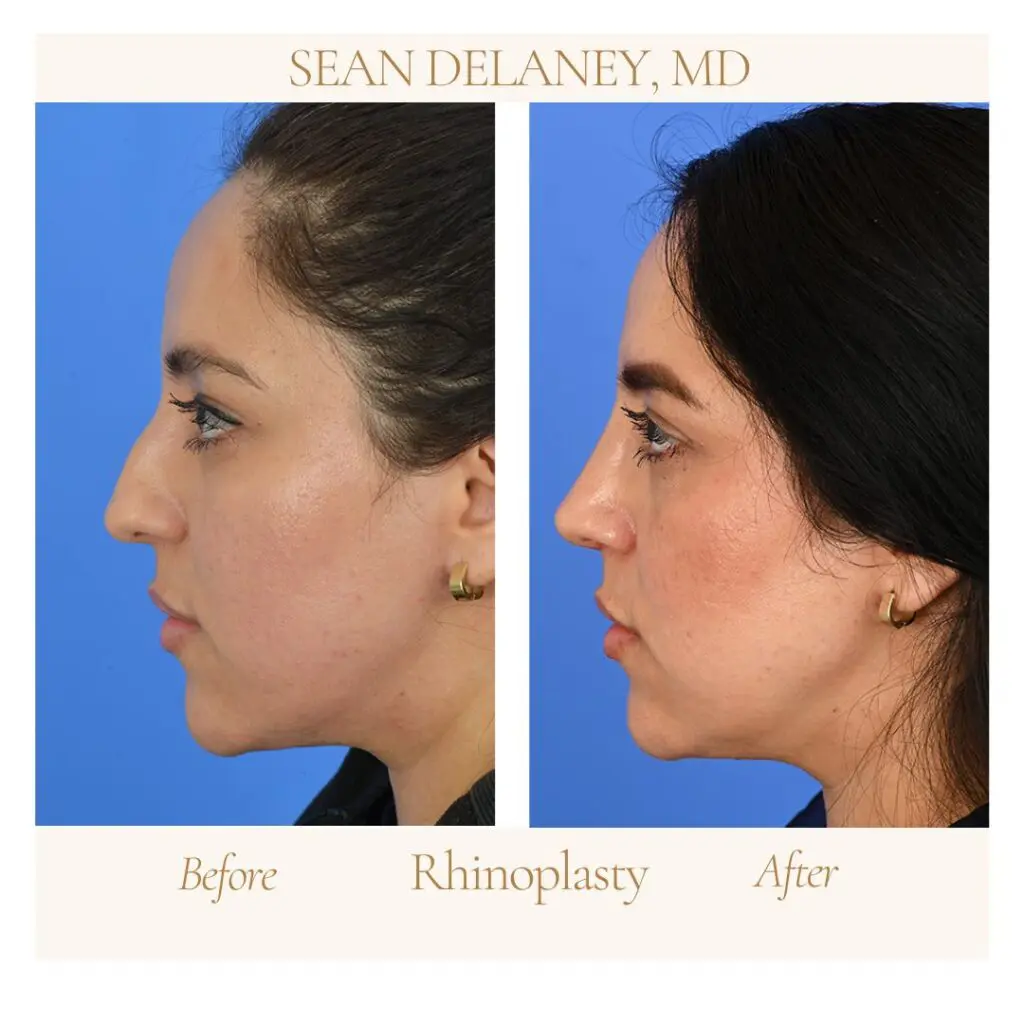
Why Does Rhinoplasty Surgery Experience Matter?
Rhinoplasty is widely regarded as one of the most technically challenging cosmetic surgeries. Minor miscalculations can affect both function and appearance. Experience matters—especially when dealing with prior surgeries or functional concerns. Dr. Kridel is a national leader in Revision Rhinoplasty, and Dr. Delaney’s meticulous training ensures beautiful, natural-looking results that function well long-term.
Why You Should Select FPSA for Your Rhinoplasty in Houston
- Unmatched Expertise: Dr. Russell Kridel and Dr. Sean Delaney are both double board-certified and nationally recognized for excellence in facial plastic surgery, including Rhinoplasty and other nasal surgeries.
- Depth of expertise: Dr. Kridel and Dr. Delaney have published in scientific medical journals and textbooks on Rhinoplasty. Dr. Kridel has pioneered surgical techniques now taught in medical schools.
- Customized Care: Every nose is unique. At FPSA, your treatment plan is tailored to your individual aesthetic goals and anatomy.
- Award-Winning Results: Dr. Kridel and Dr. Delaney have consistently received numerous peer-reviewed awards each year. Dr. Kridel has also received all the highest honors and awards for surgical excellence in his specialty.
- Natural Results: Dr. Kridel and Dr. Delaney are recognized for their natural aesthetic. Their goal is for your nose to look like you could have been born with it, and for it to function properly. Natural beauty AND excellent function!
- Comprehensive Care: From consultation through recovery, our team is committed to your safety, education, and satisfaction. No other facial plastic surgery practice in Houston provides the level of patient care and optimal results that we do. At FPSA, our patients are part of our family.
- Comprehensive Rhinoplasty Costs: FPSA costs include functional procedures that the surgeon recommends for your treatment plans. They also include all post-operative visits. Our comprehensive pricing includes the assumption of 3.5 hrs for OR (facility) and anesthesia. The comprehensive pricing for Dr. Sean Delaney is $17,195, and for Dr. Russell Kridel it is $19,895. At the time of your consultation, if the surgeon recommends a longer surgical time or special implants, the cost will be higher. We provide all our patients with an estimate based on the treatment plan provided by Dr. Kridel or Dr. Delaney at your consultation. Surgeon fees are paid to FPSA, and estimated OR/anesthesia fees are paid directly to the outpatient surgical center.
Why You Should Select a Board-Certified Facial Plastic Surgeon Instead of a General Plastic or Cosmetic Surgeon for Rhinoplasty
All plastic surgeons are not the same!
Rhinoplasty (and other nasal surgeries) are the most complex procedures of the head and neck, so it is important to have your surgery performed by a facial plastic surgery specialist with experience in Rhinoplasty.
The Difference Between Facial Plastic Surgeons and General Plastic Surgeons
Most patients do not realize that there is a difference in training among plastic surgeons. Facial plastic surgery specialists have the most extensive training specific to the nose, head, and neck. They know nasal anatomy better than any other aesthetic specialty. To become a facial plastic surgeon, the surgeon must first go through extensive training to become an Otolaryngology, Head & Neck surgeon following the completion of medical school. Then the surgeon must complete additional training specific to facial plastic surgery, including a one-year fellowship focused solely on procedures from the neck and up, as well as extensive post-fellowship practice experience, to be eligible for board certification. The American Board of Facial Plastic and Reconstructive Surgery (ABFPRS) certifies facial plastic surgeons. General plastic surgeons have excellent training spread across multiple body parts, but very little specific to just the nose. The American Society of Plastic Surgeons (ASPS) certifies general plastic surgeons. A facial plastic surgeon does not do breast and body surgery. Patients interested in breast and body procedures should select a general plastic surgeon. At FPSA, patients interested in these other procedures can consult with our associate, Dr. John Hamati.
Cosmetic Surgeons
A cosmetic surgeon only performs surgery that enhances or reshapes parts of the body and does not perform and is not trained to perform reconstructive plastic surgery of the head and neck or body. Cosmetic surgeons may call themselves cosmetic surgeons without board certification. For example, an oral surgeon or dermatologist can call themselves cosmetic surgeons. Cosmetic surgeons can be board certified only in cosmetic surgery (not reconstructive) by the American Board of Cosmetic Surgery (ABCS).

